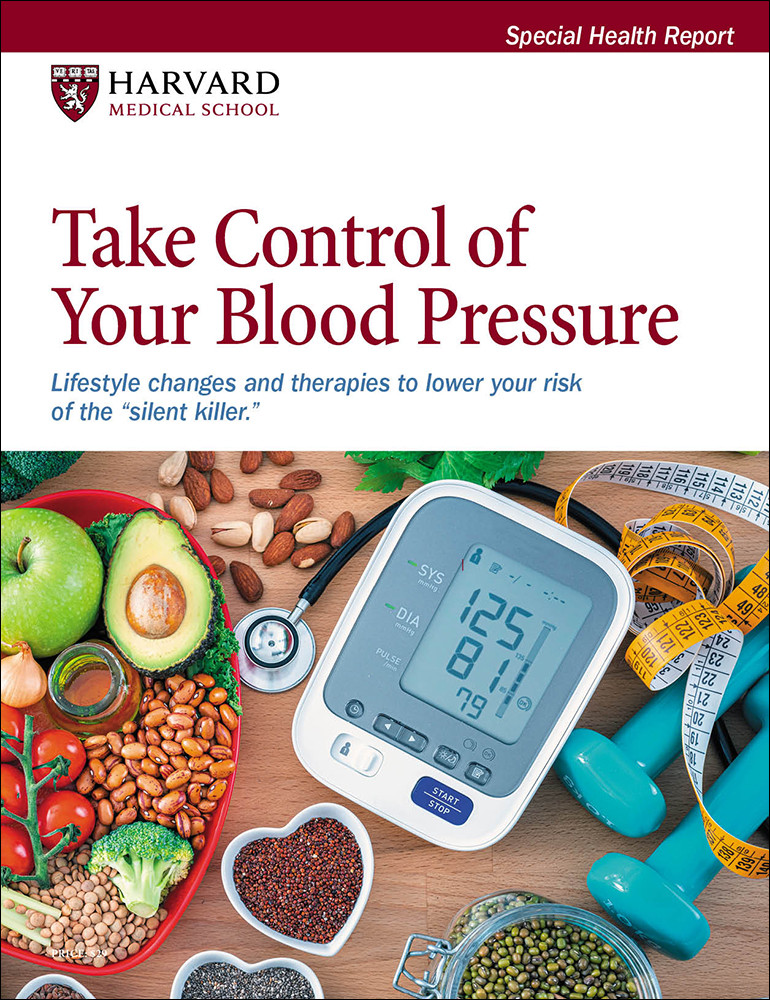The five factors that drive heart disease
Controlling these risks — especially high blood pressure — can extend your life by more than a decade.
- Reviewed by Christopher P. Cannon, MD, Editor in Chief, Harvard Heart Letter; Editorial Advisory Board Member, Harvard Health Publishing

To live a long life free of heart disease, what habits or conditions matter the most? According to a major global study, smoking and high blood pressure stand out as the two most important factors driving the risk of developing heart disease. Together with high cholesterol, excess weight (or being underweight), and diabetes, these five factors account for about 50% of the burden of cardiovascular disease, the leading cause of death worldwide. (Burden refers to all the negative effects — illness, deaths, as well as social and economic costs).
The analysis, published March 30, 2025, in The New England Journal of Medicine, combined data from more than two million people in 39 countries on six continents. Researchers estimated their lifetime risk of cardiovascular disease and death from any cause up to 90 years of age, based on whether they had or did not have each of the five factors.
Compared to people with all five risk factors at age 50, those who had none of the factors were far less likely to develop cardiovascular disease or die early. On average, women with none of the risks at midlife lived 13 more years without heart disease, while men lived an additional 11 years. As for overall survival, women without the five risks lived about 14½ years longer, while men gained nearly 12 extra years.
Risk management strategies
All five factors tend to occur together, notes Dr. Eric Rimm, a professor of epidemiology and nutrition at the Harvard T.H. Chan School of Public Health. “People with high blood pressure and high cholesterol often have obesity as well, which is why their added risk of heart disease is not surprising,” he says. Apart from smoking (currently a habit among fewer than 9% of Americans age 65 and older), all of the other factors tend to become more prevalent as people age. That’s not to say younger people shouldn’t worry about their heart-related risk factors — they definitely should, says Dr. Rimm. “But if you reach the age of 50 and have a number of these risk factors, it’s really time to make some changes because of the huge impact it can have on how long you live,” he says.
Plus, the study findings suggest that positive changes really can make a difference, especially for high blood pressure. Among people ages 55 to 59 with all five classic risk factors, lowering blood pressure to a healthy range was linked to the greatest increase in the number of years free from heart disease.
Nearly 70% of people ages 65 and older have high blood pressure, yet only about a quarter have it under control. What’s more, as many as half of all people with high blood pressure are no longer taking their medication a year after they’re diagnosed, according to some estimates.
While the blood pressure guidelines define high blood pressure as a reading of 130/80 or higher, a normal blood pressure is 120/80. But unlike your weight or your blood cholesterol value (which can be measured quite precisely with a single reading), your blood pressure fluctuates quite a bit. “Your blood pressure can be affected by many different things, such as how recently you drank a cup of coffee or whether you rushed to get to your doctor’s appointment,” says Dr. Rimm. Because both can elevate your reading, it’s a bit more challenging for your doctor to say that you definitely have high blood pressure, he adds. Rechecking your blood pressure a second or third time during an office visit can be helpful if your reading is elevated or different from your typical reading.
A wake-up call to lower your blood pressure
“But if your blood pressure is even borderline high, it should be a wake-up call to talk with your doctor about what you can to lower your it,” says Dr. Rimm. These tips can help:
Eat well. See “How a healthy gut benefits your blood pressure”.
Limit alcohol. Drinking more than moderate amounts can raise blood pressure.
Be active. Exercise that gets your heart pumping and strengthens your muscles is beneficial.
Manage your stress. Meditation and relaxation practices can help.
For more information, see the Harvard Health Publishing’s Special Health Report Take Control of Your Blood Pressure. Also, the December 2025 issue of the Heart Letter will highlight the recently updated blood pressure guidelines from The American Heart Association and the American College of Cardiology.
Image: © andresr/Getty Images
About the Author

Julie Corliss, Executive Editor, Harvard Heart Letter
About the Reviewer

Christopher P. Cannon, MD, Editor in Chief, Harvard Heart Letter; Editorial Advisory Board Member, Harvard Health Publishing
Disclaimer:
As a service to our readers, Harvard Health Publishing provides access to our library of archived content. Please note the date of last review or update on all articles.
No content on this site, regardless of date, should ever be used as a substitute for direct medical advice from your doctor or other qualified clinician.
















